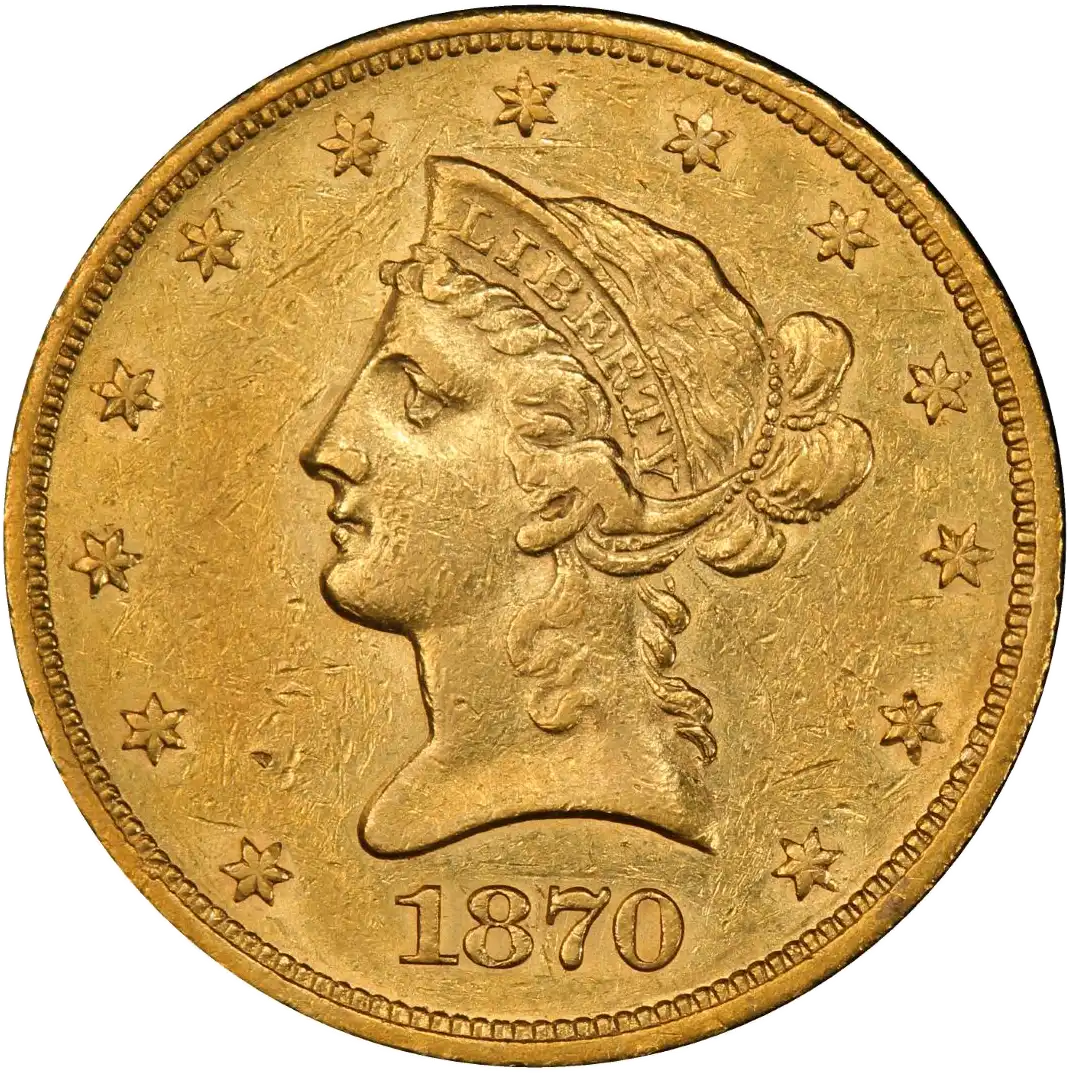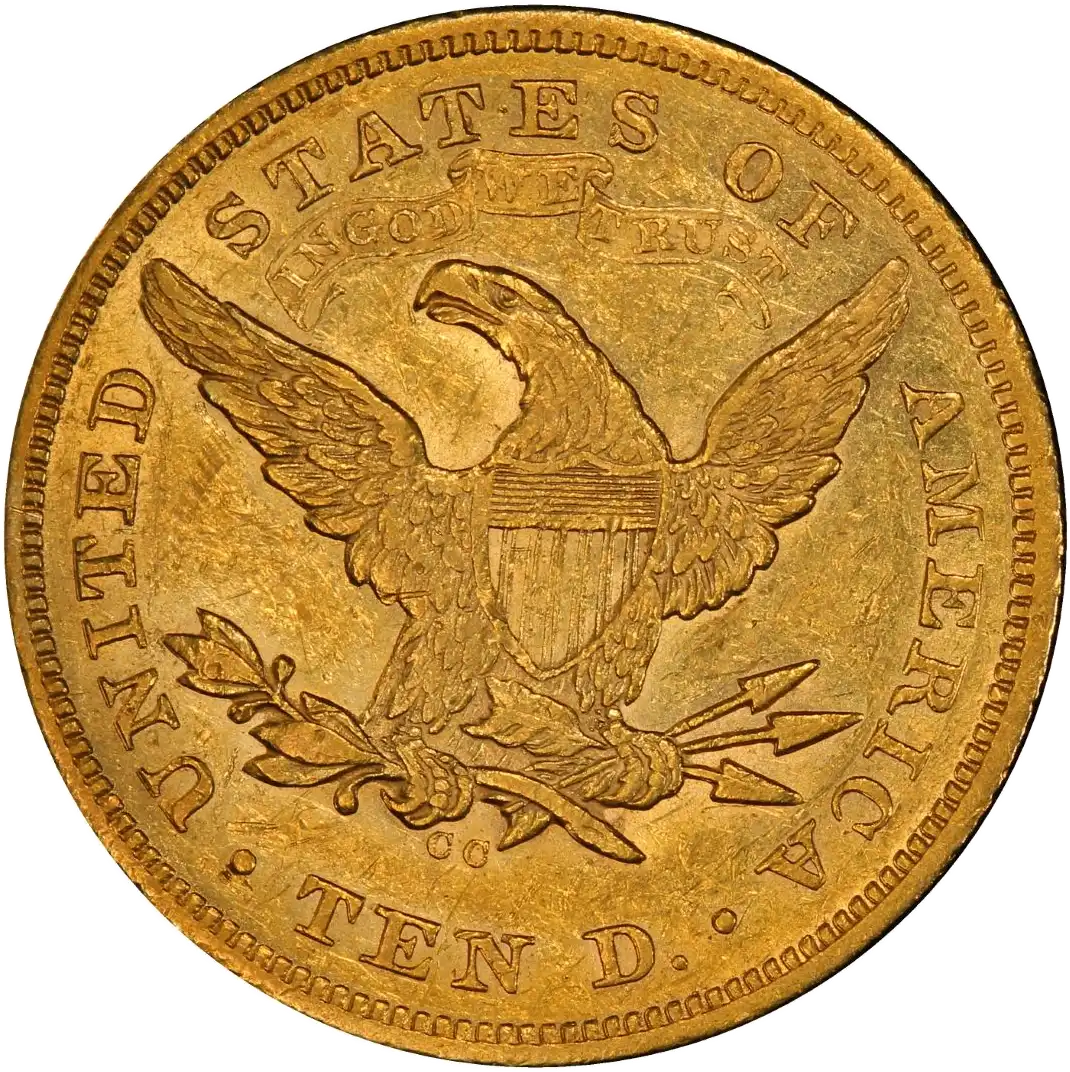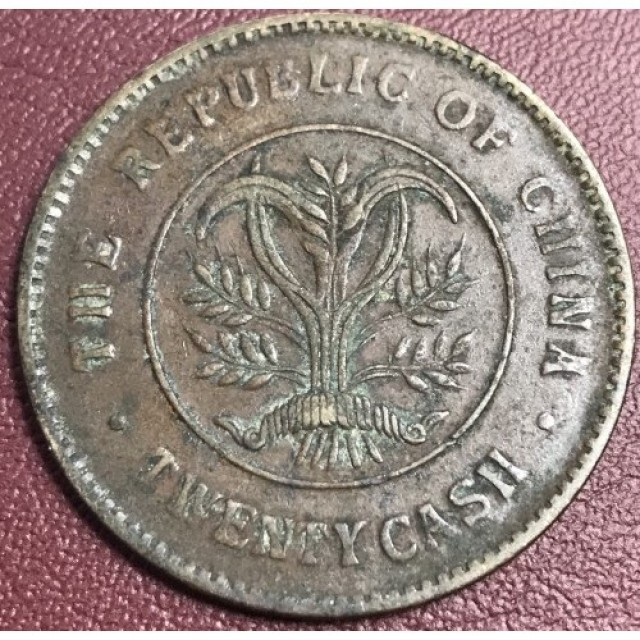USA 10 dollars Liberty Head American Eagle 1870-CC


Rarity
Attributes of Coins
| Melt Value | $1,966.40 15.048g Gold |
|---|---|
| Region | USA |
| Denomination | 10 dollars |
| Krause number | KM# 102 |
| Mintage | 5,908 |
| Metal | Gold 0.900 |
| thickness | 2 mm |
| diameter | 26.8 mm |
| weight | 16.72 g |


Introduction of Coins
On January 6, 1870, the Carson City Mint opened its doors for bullion deposit and coinage. Over the next 23 years, the facility would produce some of the most popular and romanticized coins in U.S. history. While there are numerous scarce coins among the branch mint's silver and gold deliveries, the 1870-CC is undoubtedly the rarest eagle struck in Carson City. This issue also surpasses the celebrated 1870-CC double eagle for top rarity honors among all CC-mint gold coins.
Gold coin production at the Nevada branch mint began with a delivery of 1,644 eagles on February 14. A further 4,264 coins would follow before the end of 1870 for a total mintage of only 5,908 pieces. While the 1872-CC, 1873-CC, 1876-CC, 1877-CC, 1878-CC, and 1879-CC have lower mintages, far fewer 1870-CC examples have survived in all grades. It is probable that the entire 1870-CC delivery was placed directly into circulation in and around Carson City at the time of production. Most of the coins remained in domestic channels until they were destroyed or heavily worn. As such, it is little wonder that the 1870-CC is legendary for its condition rarity as well as its absolute rarity.
In his book Gold Coins of the Old West: The Carson City Mint 1870-1893, Winter asserts that there are no more than 30 1870-CC eagles extant in all grades. Even the lower mintage 1879-CC (1,762 pieces produced) boasts a surviving population of 35-45 coins. In high grade, the distance between the 1870-CC and its closest competitors widens even more. While the second place 1873-CC (4,543 pieces produced) has a surviving population of 7-10 coins at or above the XF level, the 1870-CC is known to the extent of only 6-8 pieces in the same grades.
Read More












